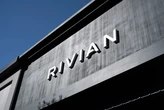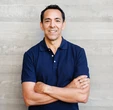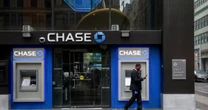This week, fintech company Karta announced a new premium credit card designed with a very specific user in mind: American nonresidents with U.S. bank accounts—and high net worths.
It’s designed to compete with other premium credit cards on the market, and thus, is available to customers who have a bank or brokerage account with a minimum balance of $150,000 in assets all without a Social Security number.
It also offers similar perks and benefits to other premium travel cards, such as the Citi Strata Elite, the Chase Sapphire Reserve, or the American Express Platinum Card. Those include access to exclusive events, a Priority Pass Select membership that provides access to airport lounges, travel and auto insurance benefits, and the ability to earn points redeemable for flights or hotels. Also, in the same vein as other premium cards, Karta’s card has an annual fee of $300, which is considerably less than others in the space.
Karta’s also announced that it’s raised $5.4 million in seed money from Canary, Clocktower Ventures, and FJ Labs, among others, and that it’s partnering with nearly two dozen U.S. financial institutions to get it into customers’ hands.
“It’s designed for known residents who have U.S. assets,” says Freddy Juez, the founder and CEO of Karta. Juez says that the offering is taking aim at a problem that many nonresidents in the U.S. have: They have a lot of money in the bank, but may lack a Social Security number or tax identification credentials. That means they can’t, or have a lot of trouble, getting a credit card, and many high-net-worth individuals in Juez’s target customer segment may want one to take advantage of some of the perks offered by other cards.
Also worth noting is that the credit cards these customers can get—usually in their native countries of Brazil, Argentina, and others—may have very high international swipe fees (which would be in the mix if they’re using the card in the U.S.) and interest rates. For instance, while an American Express may charge a foreign transaction fee of 2%, Juez says a card issued in Brazil could charge as much as 10%. Additionally, credit card interest rates in the U.S. tend to hover around 20%, whereas in Brazil, the average rate, as of June, was 450%.
That makes for some compelling reasons to look for an alternative card for those in Karta’s target demographic.
American Express offered such a card, the International Dollar Card, but started to phase it out at the end of 2024. Juez saw the market opportunity—he estimates there are tens of millions of potential customers—and jumped on it, hiring Fernando Delceggio, the former head of acquisition and new business development from AMEX International Dollar Cards (IDC), to help build out Karta’s new card. “I hired him immediately,” says Juez, and “now he runs it.”
Also of note: The card is entirely managed through WhatsApp, the messaging platform owned by Meta. Customers can make disputes, ask questions, inquire about dinner reservations, and more—all through WhatsApp, and at the direction of AI agents.
Juez says the reason for that is that the card’s target customer is wealthy Latinos, and Brazilians, in particular, and that “Brazilians are insane about WhatsApp.”
“Latinos use WhatsApp in the same way or at the same level that Americans use simple texting,” he says, which is what made WhatsApp a sort of natural fit for the card—from a tech and cultural standpoint. While there is a risk in relying on WhatsApp—a third-party messaging platform that could presumably pull the rug out from under Karta—Juez says that Karta has thought ahead.
“Everything we’ve built is in-house, and WhatsApp is there as the communications channel,” he says. So, in the worst-case scenario, Karta could move everything to another channel or platform. “But I think the incentives are aligned with what Meta wants to achieve,” he notes, since Meta wants more people to use WhatsApp, and Karta’s offerings could be one way to get them there.
Juez, too, says that this premium card offering is only the beginning for Karta in the U.S., and he says the company could branch out after a few years into other financial offerings, such as bank accounts. And he’s confident, after less than a year in operation, that he’s tapped into a sizable and underserved customer segment, as evidenced by the company’s fast growth.
“When I hired Fernando, he told me this was going to be a slow process. He said I’d only get one or two banks to become partners in six months,” Juez says. “We’ve gotten 22 banks in six months. That tells you how good the product is.”








No comments